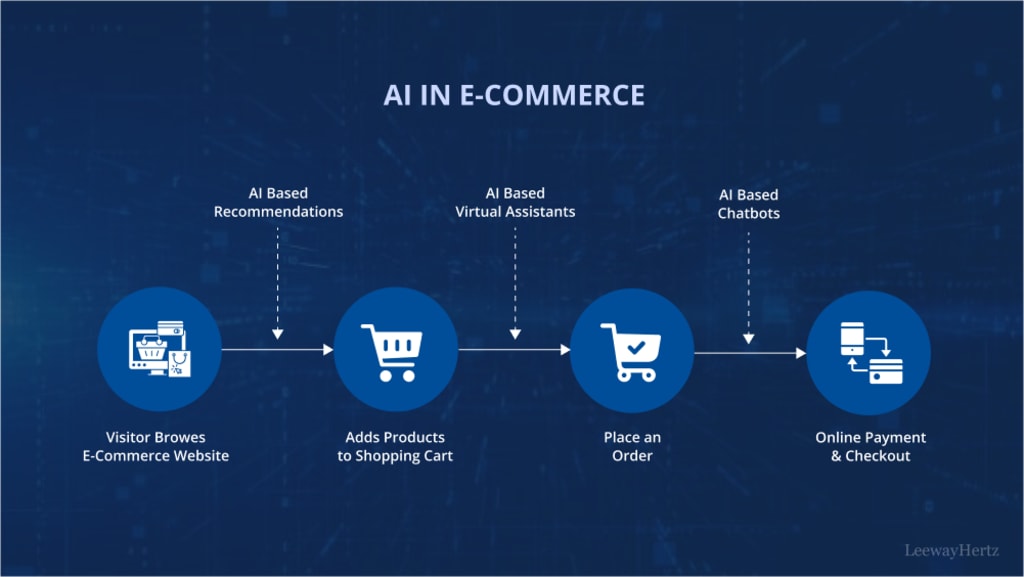Uncover the secrets behind the e-commerce revolution and discover how online shopping has forever transformed the retail industry.
Table of Contents
In today’s fast-paced digital world, the retail industry has undergone a significant transformation with the rise of e-commerce. Consumers now have the convenience of shopping online from the comfort of their homes, and businesses have the opportunity to reach a global audience. In this blog post, we will explore how e-commerce is revolutionizing retail and changing the way we shop.
Strategic Planning for Growth
One of the key aspects of successfully scaling a business in the e-commerce industry is strategic planning. A well-thought-out strategic plan can help businesses navigate the competitive landscape and capitalize on market trends. When creating a strategic plan for growth, it is essential to set clear goals and objectives that align with the long-term vision of the business.
Moreover, adapting to changing market trends is crucial for e-commerce businesses. By staying informed about industry disruptions and emerging technologies, businesses can adjust their strategies accordingly and stay ahead of the competition.
Implementing Effective Marketing Strategies
Marketing plays a vital role in the success of e-commerce businesses. From digital marketing tactics to customer engagement techniques, a well-rounded marketing strategy can drive traffic to a website and increase sales. Businesses should leverage social media platforms, email marketing campaigns, and search engine optimization to reach their target audience and build brand awareness.
It is also important to adapt marketing strategies to changing market trends and industry disruptions. By continuously analyzing consumer behavior and market dynamics, businesses can refine their marketing efforts and stay relevant in a rapidly evolving digital landscape.
Financial Management for Sustainable Growth
Financial management is another critical component of scaling an e-commerce business. Effective cash flow management, budgeting, and forecasting are essential for sustainable growth. E-commerce businesses should also focus on securing funding for startups and managing finances during periods of rapid expansion.

Image courtesy of www.linkedin.com via Google Images
By implementing sound financial management practices, businesses can mitigate financial risks and position themselves for long-term success in the competitive e-commerce market.
Building a Strong Corporate Culture
Corporate culture plays a significant role in shaping the identity of an e-commerce business. A positive and inclusive corporate culture can boost employee morale, enhance productivity, and drive business growth. Businesses should focus on creating a work environment that aligns with their values and goals.
By fostering a strong corporate culture, e-commerce businesses can attract and retain top talent, improve employee engagement, and build a cohesive team that is dedicated to achieving the company’s objectives.
Embracing Digital Transformation and Technology
Embracing digital transformation is essential for e-commerce businesses looking to stay competitive in the market. By leveraging e-commerce platforms, supply chain management systems, and other technology-driven solutions, businesses can streamline operations, enhance customer experiences, and drive growth.

Image courtesy of vocal.media via Google Images
Moreover, implementing sustainable business practices through digital transformation initiatives can reduce environmental impact and support corporate social responsibility efforts. E-commerce businesses should prioritize digital transformation to stay relevant and drive long-term success in the evolving retail landscape.
Conclusion
In conclusion, e-commerce is revolutionizing the retail industry and changing the way we shop. By focusing on strategic planning, effective marketing strategies, financial management, corporate culture, and digital transformation, businesses can scale successfully and thrive in a competitive market.
As e-commerce continues to evolve, businesses must adapt to changing trends and embrace technology to stay ahead of the competition. By prioritizing innovation and customer engagement, e-commerce businesses can revolutionize retail and shape the future of online shopping.








